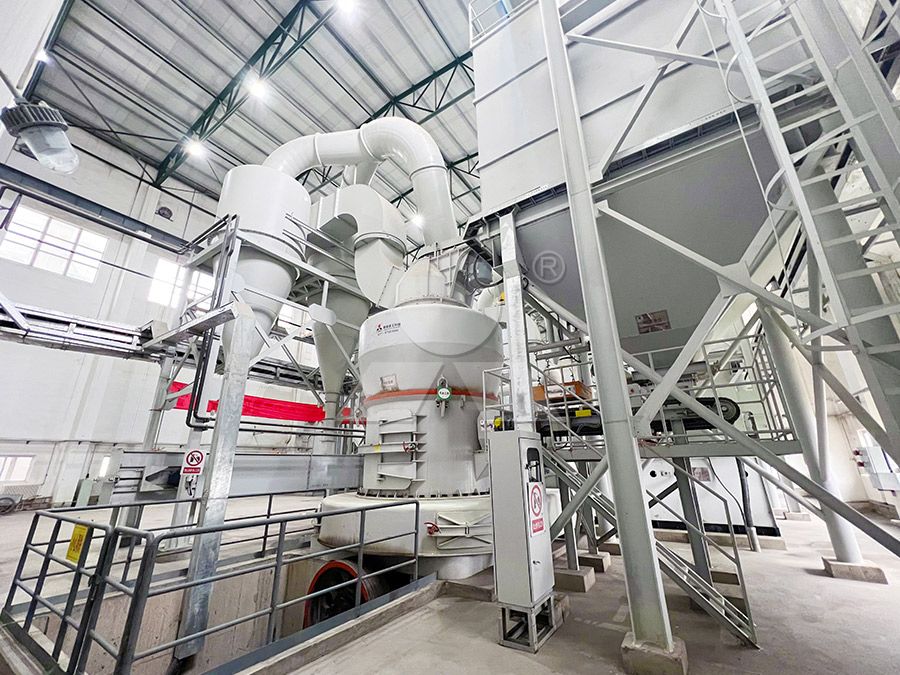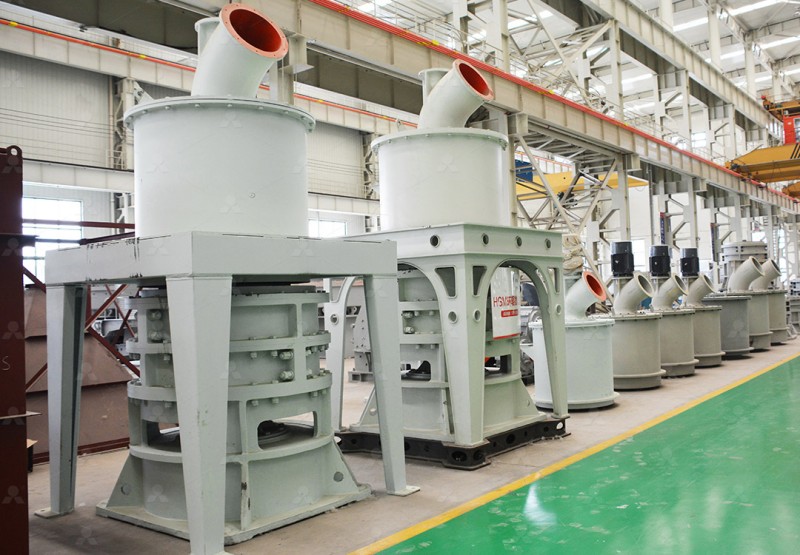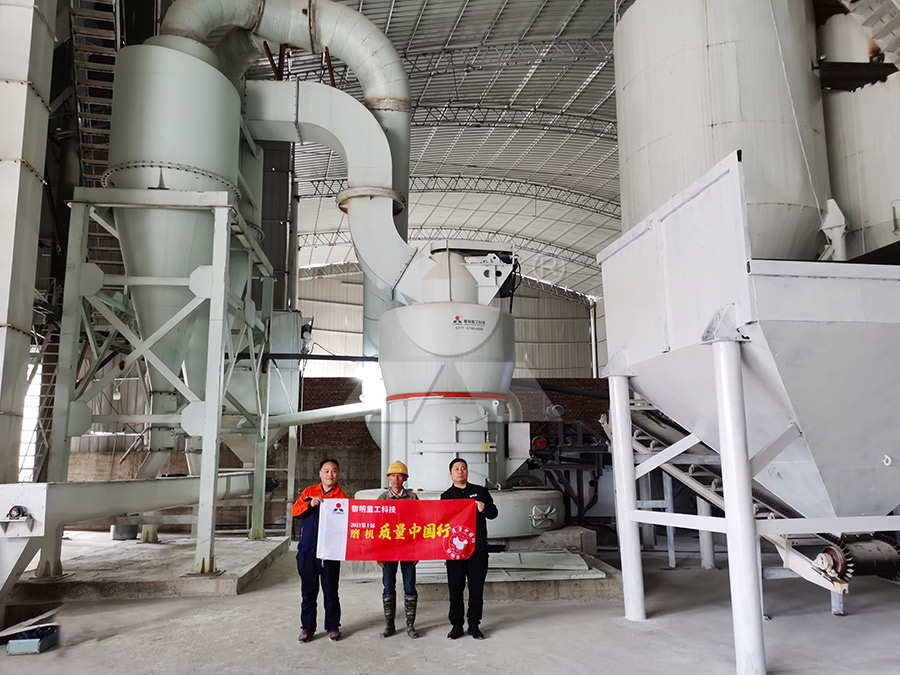Gypsum Grinding Solutions for Efficient Powder Production
We provide a wide range of mills — including Raymond mill, trapezoidal mill, vertical mill, ultrafine mill, and ball mill, obtained ISO9001 international quality certification, EU CE certification, and Customs Union CU-TR certification. Suitable for processing minerals such as limestone, phosphate, quicklime, kaolin, talc, barite, bentonite, calcium carbonate, dolomite, coal, gypsum, clay, carbon black, slag, cement raw materials, cement clinker, and more.
The discharge range of these mills can be adjusted to meet specific processing needs, typically from 80-400 mesh, 600-3250 mesh, and can achieve the finest particle size of up to 6000 mesh(D50).
If you are looking for a reliable grinding solution to turn stone or minerals into fine powder, please feel free to contact our online customer service.
Gypsum Grinding Solutions for Efficient Powder Production
In today’s competitive construction and industrial sectors, efficient gypsum processing has become paramount for manufacturers seeking to optimize their powder production lines. The transformation of raw gypsum into high-quality powder requires precision engineering and advanced technology to meet the stringent demands of various applications.

The challenges in gypsum powder production are multifaceted. Manufacturers must contend with varying raw material characteristics, environmental regulations, energy consumption concerns, and the need for consistent product quality. Traditional grinding methods often fall short in addressing these complex requirements, leading to operational inefficiencies and suboptimal product outcomes.
Advanced Technology for Superior Gypsum Processing
Modern gypsum grinding solutions have evolved significantly, incorporating cutting-edge technologies that enhance efficiency while reducing environmental impact. Among these innovations, the MW Ultrafine Grinding Mill stands out as a revolutionary solution specifically engineered for ultra-fine powder production. This advanced system processes materials with input sizes up to 20 mm and delivers impressive capacities ranging from 0.5 to 25 tons per hour.
The MW Ultrafine Grinding Mill incorporates several groundbreaking features that make it particularly suitable for gypsum processing. Its newly designed grinding curves for rollers and rings significantly enhance grinding efficiency, achieving production capacities 40% higher than jet grinding mills and double the output of traditional ball mills. Meanwhile, the system consumes only 30% of the energy required by jet grinding alternatives.

Precision and Flexibility in Powder Production
One of the most critical aspects of gypsum powder production is the ability to control fineness according to specific application requirements. The MW Ultrafine Grinding Mill addresses this need through its advanced cage-type powder selector, which incorporates German technology to ensure precise powder separation. The system allows operators to adjust fineness between 325 and 2500 meshes, with screening rates achieving d97≤5μm in a single pass.
This level of precision is particularly valuable for gypsum processors serving multiple markets, from construction materials requiring specific particle size distributions to industrial applications demanding ultra-fine powders. The flexibility to quickly adjust product specifications without compromising efficiency gives manufacturers a significant competitive advantage.
Operational Reliability and Environmental Compliance
Beyond performance metrics, modern gypsum grinding solutions must address operational reliability and environmental concerns. The innovative design of the MW Ultrafine Grinding Mill eliminates rolling bearings and screws within the grinding chamber, removing common failure points that plague conventional systems. The external lubrication system enables continuous 24-hour operation without shutdowns for maintenance.
Environmental considerations are thoroughly addressed through integrated pulse dust collection and noise reduction technologies. The efficient pulse dust collector ensures dust-free operation throughout the entire milling process, while specially configured silencers and noise elimination rooms maintain workplace noise at acceptable levels. These features collectively ensure compliance with stringent environmental protection standards.

Digital Integration for Enhanced Performance
The transition to Industry 4.0 has transformed gypsum processing operations, with digital technologies playing an increasingly crucial role in optimizing performance. Advanced grinding mills now incorporate sophisticated control systems that monitor and adjust operational parameters in real-time. Digital processing techniques, including numerically controlled machining operations for core components, ensure exceptional precision and consistency in manufacturing.
This digital integration extends to maintenance and support, with comprehensive spare parts availability and technical services ensuring worry-free operation. Manufacturers benefit from reduced downtime and enhanced production continuity, critical factors in maintaining competitive advantage in the dynamic gypsum products market.
Frequently Asked Questions
What makes the MW Ultrafine Grinding Mill suitable for gypsum processing?
The MW Ultrafine Grinding Mill is specifically designed for materials like gypsum, offering adjustable fineness between 325-2500 meshes and high-efficiency grinding that maintains the material’s inherent properties while achieving desired particle size distributions.
How does the energy consumption compare to traditional grinding systems?
The MW system consumes approximately 30% of the energy required by jet grinding mills and offers 40% higher production capacity than jet mills and twice the output of ball mills with the same fineness and power input.
What environmental features are incorporated into modern gypsum grinding systems?
Advanced systems include efficient pulse dust collectors that eliminate dust pollution, silencers and noise elimination rooms to reduce operational noise, and fully enclosed systems that operate under negative pressure to prevent material escape.
Can the grinding fineness be adjusted for different gypsum applications?
Yes, the cage-type powder selector with German technology allows precise adjustment of fineness between 325-2500 meshes, enabling production of everything from construction-grade gypsum to ultra-fine powders for specialized applications.
What maintenance advantages does the MW Ultrafine Grinding Mill offer?
The absence of rolling bearings and screws in the grinding chamber eliminates common failure points, while external lubrication enables continuous 24-hour operation. The design also prevents machine damage from loose screws and allows external lubrication without shutdown.
